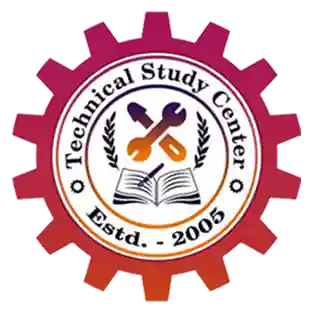At Technical Study Center, we believe that every student has the potential to achieve great things with the right guidance and smart learning techniques. If your dream is to work with the Indian Space Research Organisation (ISRO), you need dedication, strategy, and a deep understanding of technical concepts. We help students prepare effectively for the ISRO recruitment exams so they can confidently take a step toward this prestigious career.
Understanding the ISRO Recruitment Exam
ISRO conducts exams for various posts like Scientist/Engineer, Technical Assistant, and Technician. The selection process generally includes:
- Written Exam – Tests knowledge in technical subjects, general aptitude, and reasoning.
- Skill Test / Interview – Checks practical skills and problem-solving abilities.
- Medical & Document Verification – Ensures final selection.
The ISRO exam is highly competitive, requiring strong technical knowledge, logical thinking, and problem-solving skills.
Our Unique Approach to ISRO Exam Preparation
Many students prepare by reading multiple books and solving endless problems, but this alone does not guarantee success. At Technical Study Center, we focus on learning smarter through practical techniques, structured revision, and strategic problem-solving.
1. Concept-Based Learning – The “Why & How” Method
Instead of memorizing formulas and theories, we encourage students to ask “Why?” and “How?” for every topic.
Example:
For rocket propulsion, instead of just memorizing equations, students should ask:
- Why does a rocket need multiple stages?
- How does Newton’s Third Law apply in space?
This approach makes concepts clearer and easier to apply in real-world problems.
2. Reverse Learning – Start with Questions, Then Find the Concept
Many students struggle to apply knowledge in problem-solving. We train them using reverse learning:
- First, analyze past ISRO exam questions.
- Then, break down the question and identify the concept used.
- Finally, master the concept by solving similar problems in different formats.
Example:
Instead of simply reading about digital circuits, students solve a complex ISRO question first, then go back and study the logic gates and circuit design principles. This method improves problem-solving speed and accuracy.
3. The “Doubt Bank” Method – Turning Weaknesses into Strengths
Most students ignore small doubts, thinking they are unimportant. But in the exam, small doubts can lead to big mistakes. We encourage students to keep a Doubt Bank, where they:
- Write every small doubt.
- Discuss it in class or research the correct answer.
- Revise the correct answers weekly.
Example:
If a student is unsure about satellite communication frequencies, they note it down, clarify it in class, and review it weekly. Over time, all doubts disappear, and confidence improves.
4. The “5-Minute Sketch” Rule for Difficult Topics
ISRO exams often test complex engineering concepts. Instead of writing long notes, we train students to:
- Summarize the topic in 5 minutes.
- Draw a simple diagram explaining the process.
- Use flowcharts and mind maps for quick revision.
Example:
For cryogenic engines, students draw a simple sketch explaining the fuel process, rather than memorizing long paragraphs. This technique helps in quick recall during the exam.
5. Speed & Accuracy Training with the “10-Second Rule”
Many students struggle with time management in exams. We teach them the 10-Second Rule:
- If a question seems too difficult to solve within 10 seconds, mark it and move on.
- Return to it after solving easier questions first.
This prevents wasting time on one question, ensuring that students attempt maximum questions with confidence.
